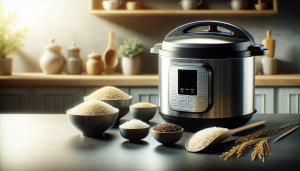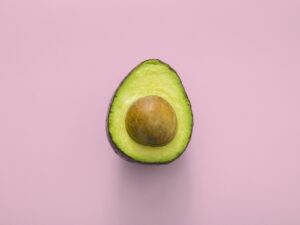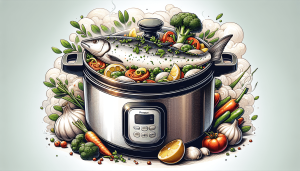Making Baby Food in the Instant Pot: A Beginner’s Guide” warmly invites you into the world of homemade baby food, simplifying the process for even the busiest parents. This guide will walk you through everything you need to know, from selecting the freshest ingredients to mastering time-saving techniques with your Instant Pot. You’ll discover how to create nutritious, delicious meals for your little one, all while enjoying the convenience and ease that the Instant Pot offers. Enjoy the satisfaction of knowing exactly what goes into your baby’s meals, and let this guide be your trusty companion on this rewarding journey. Have you ever thought about making your baby food but felt overwhelmed by where to start? If yes, then you’ve come to the right place. In this guide, we’re here to simplify the process for you, focusing on how to utilize the Instant Pot to create nutritious and delicious meals for your little one.
Making Baby Food in the Instant Pot: A Beginner’s Guide
Why Choose the Instant Pot for Making Baby Food?
The Instant Pot is like having a magic gadget in your kitchen. It saves time, is incredibly versatile, and simplifies the baby food-making process. Plus, it helps you prepare healthy, preservative-free meals that you can feel good about.
Nutritional Benefits
When you make your own baby food, you control what goes into each meal. This means no hidden sugars or fillers—just wholesome ingredients. The Instant Pot helps retain the nutrients in your fruits and vegetables, ensuring that your baby gets the maximum nutritional benefit.
Convenience and Time-Saving
Who has time to stand over a stove, stirring and waiting? The Instant Pot does the heavy lifting for you. You can have a batch of baby food ready in a fraction of the time it would traditionally take.
Getting Started
Before diving into recipes, let’s cover the basics.
What You Need
- Instant Pot: Make sure you have a model that suits your needs.
- Steam Basket: This accessory will come in handy for steaming veggies and fruits.
- Blender or Food Processor: To get that perfectly smooth texture for your baby’s food.
- Storage Containers: Small, airtight containers are ideal for storing and freezing your baby food.
Basic Steps
- Wash and Prep: Clean and peel your fruits and veggies.
- Cook: Use the Instant Pot to steam or cook.
- Blend: Puree the cooked ingredients to your desired consistency.
- Store: Store in an airtight container and refrigerate or freeze.

Age-Appropriate Foods
Knowing what foods to introduce at each stage of your baby’s development is crucial.
Stage 1: Single Ingredient Purees (4-6 months)
At this stage, your baby is just getting used to solids. Simple, single-ingredient purees are best.
| Food | Preparation Method | Cooking Time |
|---|---|---|
| Apples | Peel, core, and chop | 5 minutes on high pressure |
| Carrots | Peel and chop | 10 minutes on high pressure |
| Sweet Potatoes | Peel and chop | 8 minutes on high pressure |
Stage 2: Mix and Match Purees (6-8 months)
Once your baby is acclimated to solids, you can start mixing flavors and textures.
| Food Combination | Preparation Method | Cooking Time |
|---|---|---|
| Apple & Pear | Peel, core, and chop both | 5 minutes on high pressure |
| Carrot & Pea | Peel and chop carrots, add peas | 10 minutes on high pressure for carbs, quick release and then add peas for 2 minutes on high pressure |
| Sweet Potato & Spinach | Peel and chop sweet potato, add spinach | 8 minutes for sweet potato on high pressure, quick release and add spinach for 1 minute on high pressure |
Stage 3: Chunky Textures (8-12 months)
At this stage, your baby may be ready for more texture in their food.
| Food Combination | Preparation Method | Cooking Time |
|---|---|---|
| Quinoa & Veggies | Rinse quinoa, chop veggies | 1 minute on high pressure with a natural release |
| Lentils & Carrots | Rinse lentils, chop carrots | 10 minutes on high pressure |
| Chicken & Sweet Potato | Chop chicken and sweet potato | 10 minutes on high pressure |
Recipe Ideas
Now that you understand the basics, let’s dive into some simple and nutritious recipes.
Apple and Blueberry Puree
Ingredients:
- 3 apples (peeled, cored, and chopped)
- 1/2 cup blueberries
Method:
- Place the chopped apples and blueberries into the Instant Pot.
- Add 1 cup of water.
- Set the Instant Pot to High Pressure for 5 minutes.
- Quick release the pressure.
- Blend until smooth.
Storage: This puree can be stored in the refrigerator for up to 3 days or in the freezer for up to 3 months.
Carrot and Pea Puree
Ingredients:
- 2 carrots (peeled and chopped)
- 1/2 cup frozen peas
Method:
- Place the chopped carrots into the Instant Pot.
- Add 1 cup of water.
- Set the Instant Pot to High Pressure for 8 minutes.
- Quick release the pressure and then add the peas.
- Set the Instant Pot to High Pressure for 2 more minutes.
- Blend until smooth.
Storage: Store in the refrigerator for up to 3 days or in the freezer for up to 3 months.
Sweet Potato and Spinach Puree
Ingredients:
- 1 sweet potato (peeled and chopped)
- 1 cup spinach leaves
Method:
- Place the chopped sweet potato into the Instant Pot.
- Add 1 cup of water.
- Set the Instant Pot to High Pressure for 8 minutes.
- Quick release the pressure and then add the spinach leaves.
- Set the Instant Pot to High Pressure for 1 more minute.
- Blend until smooth.
Storage: Store in the refrigerator for up to 3 days or in the freezer for up to 3 months.

Storing and Reheating Baby Food
Properly storing and reheating baby food ensures that it remains nutritious and safe for your baby.
Refrigeration
Store baby food in small, airtight containers. Refrigerated baby food typically lasts up to 3 days.
Freezing
Freezing is a great way to batch cook and save time. You can use ice cube trays to freeze small portions and then transfer the cubes to freezer bags. Frozen baby food can last up to 3 months.
Reheating
To reheat, simply thaw the frozen puree in the refrigerator overnight or warm it up directly from the freezer using the ‘Steam’ function on your Instant Pot.
Safety Tips and Best Practices
Ensuring the safety of homemade baby food is paramount.
Hygiene
Always wash your hands and sanitize your tools before preparing baby food to avoid contamination.
Fresh Ingredients
Use fresh, high-quality ingredients. Avoid using foods that are past their prime.
Allergy Awareness
Introduce new foods one at a time to monitor for possible allergies. Consult your pediatrician if you have any concerns.

Troubleshooting Common Issues
Even seasoned instant pot users occasionally encounter hiccups when preparing baby food. Here are some solutions to common challenges.
Baby Food Too Thin
If your puree ends up too thin, you can thicken it by blending in a small amount of cooked oatmeal or rice cereal.
Baby Food Too Thick
If your puree is too thick, add a splash of breast milk, formula, or water to achieve the desired consistency.
Fussy Eaters
If your baby isn’t fond of a particular food, try mixing it with a favorite. Sometimes a small change in texture or combination can make a big difference.
Batch Cooking and Meal Planning
Meal prepping isn’t just for adults! Store-bought baby food can be expensive, but with a little planning, you can have homemade options ready to go with minimal daily effort.
Batch Cooking
Set aside a specific time each week for cooking. Make large batches and then store them in portion-sized containers. This approach is a great way to ensure your freezer is always stocked with a variety of meals for your baby.
Sample Meal Plan
| Day | Breakfast | Lunch | Dinner |
|---|---|---|---|
| Monday | Apple & Blueberry Puree | Carrot & Pea Puree | Sweet Potato & Spinach Puree |
| Tuesday | Pear Puree | Lentil & Carrot Puree | Quinoa & Veggies |
| Wednesday | Peach Puree | Chicken & Sweet Potato | Mixed Veggie Puree |
| Thursday | Banana Mash | Apple & Raspberry Puree | Butternut Squash & Corn |
| Friday | Avocado Smash | Sweet Potato & Broccoli | Carrot & Potato |
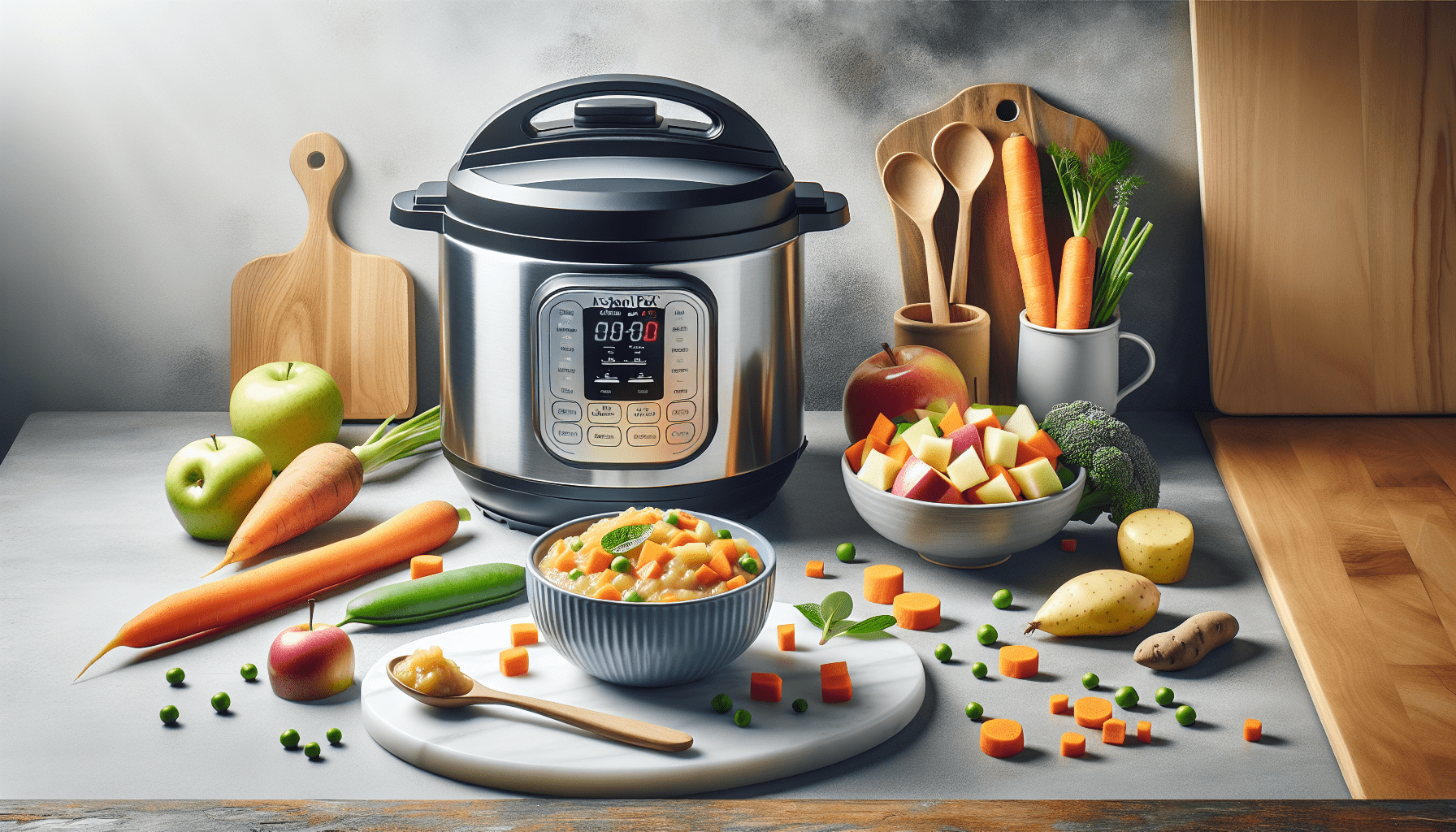
Benefits of Homemade Baby Food
Understanding the advantages of making baby food at home can be highly motivating.
Cost Savings
Homemade baby food often costs less than store-bought versions, particularly when you buy ingredients in bulk or source them from local farmers’ markets.
Customizable Nutrition
You can tailor recipes to suit your baby’s specific nutritional needs or preferences. Whether it’s incorporating more iron-rich foods or experimenting with flavors, homemade options offer more flexibility.
Environmental Impact
Less packaging means a smaller environmental footprint. By making your baby’s food at home, you reduce waste and promote a more sustainable lifestyle.
Frequently Asked Questions
Here are some common questions that parents have about making baby food in the Instant Pot.
Can I cook meat for my baby in the Instant Pot?
Yes, you can cook meat in the Instant Pot. Make sure it’s well-cooked and blend it finely with other ingredients to suit your baby’s texture preference.
How do I ensure the food is safe for my baby?
Always use fresh ingredients, maintain excellent hygiene, and store the food properly. Introducing one new food at a time will help identify any potential allergies.
Can I use spices?
Yes, mild spices can be added once your baby has tried basic foods without any issues. Herbs like basil or cinnamon can make the food more palatable.
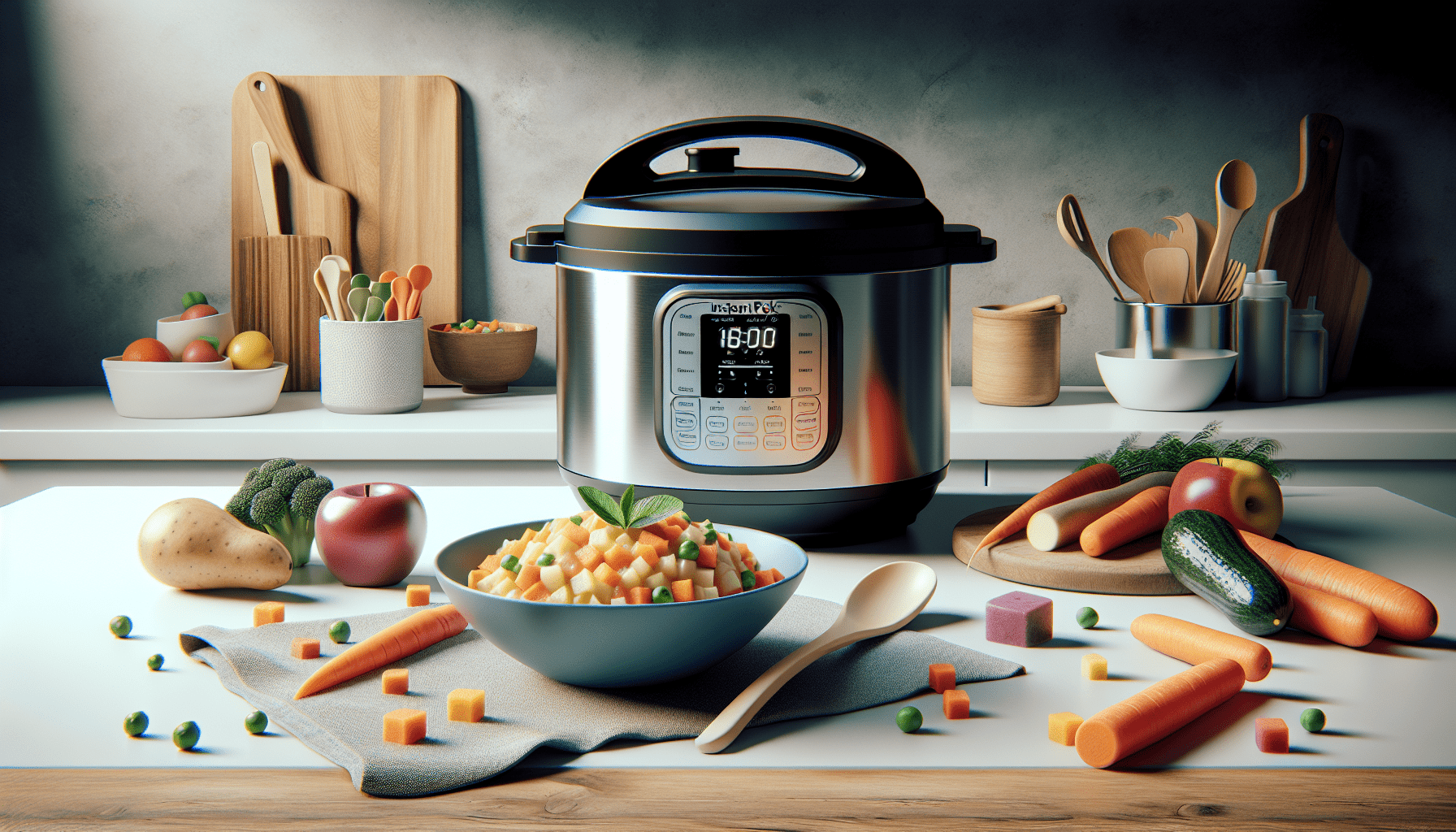
Final Thoughts
Making baby food in the Instant Pot may seem daunting at first, but once you get the hang of it, you’ll find it’s both easy and rewarding. Not only do you provide your baby with nutritious, additive-free meals, but you also establish healthy eating habits that can last a lifetime. So grab your Instant Pot and start cooking up a storm—you’ve got this!
Thanks for joining us on this culinary journey. Here’s to happy, healthy eating for your little one and some stress-free meal prep for you!

